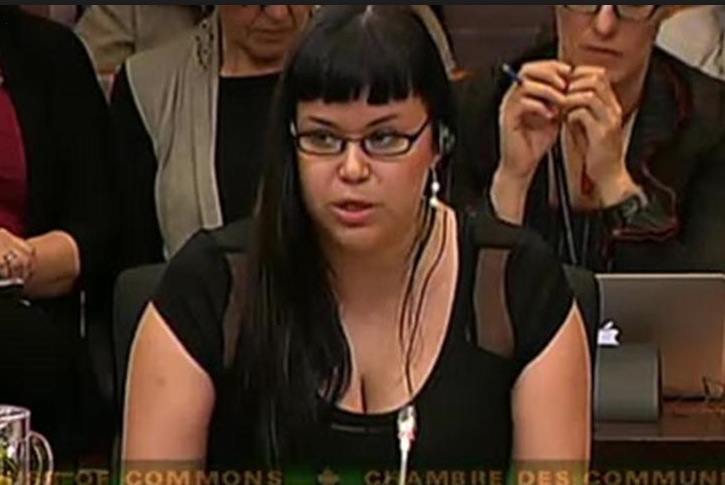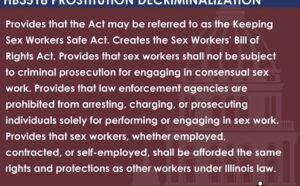Current and former sex workers led the debate on proposed changes to Canada’s prostitution laws Monday, making their cases for and against the legislation.
Justice Minister Peter MacKay kicked off a week of justice committee meetings by warning MPs that prostitution will be decriminalized if his proposed legislation isn’t in place by the end of the year. He told reporters following the meeting that he expects a Supreme Court challenge if Parliament passes the bill into law.
Later in the day, MPs heard from current and former sex workers, as well as legal and policy experts.
MP asks about ‘eradication’ of prostitution
Timea Nagy of Walk With Me Canada Victims’ Services said she supports the government’s proposed law, and that the vast majority [sic] of sex workers are forced into the industry.
Nagy described her horrifying experience as a victim of human trafficking. Her first encounter was with three men at a massage parlour. “I closed my eyes, and I looked up and I was thinking that if anyone would have seen this, would anyone come and rescue me? Only to find out later that my so-called bodyguard was watching the whole thing on video,” she said.
“I was indoors, it was safe, they paid for their services, but nobody told me the rules because I was new to it, so I was raped for about an hour by three different men.”
The Supreme Court of Canada struck down Canada’s old prostitution law last December in a ruling known as Bedford, and gave it a year to replace it with one that would comply with the Charter of Rights and Freedoms. 
Some advocates for sex workers said they chose their profession and want to be able to protect themselves. “If this bill becomes law, clients will not provide information on themselves, which is essential to protect ourselves from people who are badly intentioned,” said Émilie Laliberté, a spokeswoman for the Canadian Alliance for Sex Work Law Reform.
‘Most women not trafficked’
Another witness, however, contradicted MacKay and Nagy, and said the vast majority of women in the sex trade are not trafficked.
“Most women are not trafficked. That’s what the research literature says,” said John Lowman, a criminology professor from Simon Fraser University?.
Lowman also took issue with Nagy’s assertion that the average entry age into prostitution is 14.
“That is a preposterous claim. There is only one piece of research that supports it. It is a study of juveniles that excluded adults. If you look at research which includes both juveniles and adults, the average age is generally 18 or well above that,” he said.
Jean McDonald, executive director of Maggie’s, which represents Toronto sex-trade workers, said the bill won’t make such work less dangerous.
“This legislation will only further marginalize, further victimize and push sex workers into dangerous and potentially violent situations. This bill does nothing to protect the rights of sex workers in this country. What we will see with this legislation is the same kind of harms as under the same laws that were struck down by the Supreme Court. We will see more murdered and missing women as a result of this legislation,” McDonald said following MacKay’s committee appearance.
Leonardo Russomanno, who represents the Criminal Lawyers’ Association, told MPs the legislation wouldn’t withstand a charter challenge because the provisions are overly broad, disproportionate and arbitrary and won’t achieve their goals.
“In our view, Bill C-36 is bad policy and bad law,” he said






